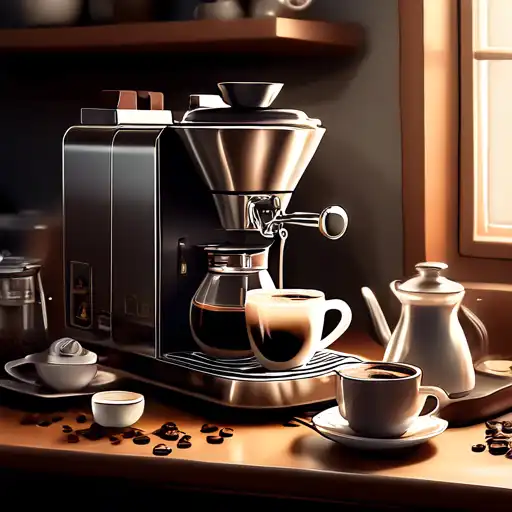Introduction to Homemade Coffee Mastery
There's nothing quite like starting your day with a cup of perfectly brewed coffee. While many rely on coffee shops for their daily fix, mastering the art of making coffee at home can be both rewarding and cost-effective. This guide will walk you through the essentials of crafting the perfect cup of coffee in the comfort of your own kitchen.
Choosing the Right Beans
The foundation of any great coffee is the beans. Opt for high-quality, freshly roasted beans from reputable sources. Consider the roast level that suits your taste—light roasts are more acidic and retain more of the bean's original flavor, while dark roasts offer a bolder, richer taste.
Grinding Your Beans
For the freshest taste, grind your beans just before brewing. The grind size should match your brewing method—fine for espresso, medium for drip coffee, and coarse for French press. Investing in a good quality burr grinder can make a significant difference in the consistency of your grind.
Water Quality and Temperature
Water makes up about 98% of your coffee, so its quality is paramount. Use filtered water to avoid any off-flavors. The ideal brewing temperature is between 195°F and 205°F. Too hot, and you risk over-extraction; too cool, and your coffee may taste flat.
Brewing Methods
There are several methods to brew coffee at home, each offering a unique flavor profile. Here are a few popular ones:
- Drip Coffee Maker: Convenient and consistent, ideal for those who prefer a straightforward approach.
- French Press: Offers a rich and full-bodied cup, with more oils and sediments.
- Espresso Machine: For those who love a strong, concentrated coffee with a creamy layer on top.
- AeroPress: A versatile and portable option that can mimic espresso or drip coffee.
Perfecting Your Technique
Regardless of the method, the key to perfect coffee lies in the ratio of coffee to water, the brewing time, and the technique. A general starting point is a 1:16 coffee to water ratio, but feel free to adjust based on your preference. Timing is also crucial—over-brewing can lead to bitterness, while under-brewing may result in a weak cup.
Experimenting with Flavors
Once you've mastered the basics, don't be afraid to experiment. Adding spices like cinnamon or nutmeg during brewing, or trying different milk alternatives, can add a new dimension to your coffee. For more inspiration, check out our guide on creative coffee recipes.
Conclusion
Making the perfect cup of coffee at home is an art that requires patience, practice, and a bit of experimentation. By focusing on quality ingredients, proper technique, and the right equipment, you can elevate your coffee experience beyond what most coffee shops offer. Remember, the best coffee is the one that suits your taste, so don't hesitate to tweak the variables until you find your perfect brew.
